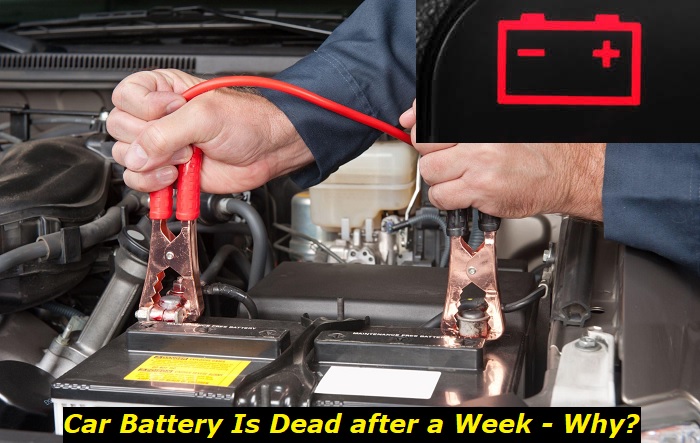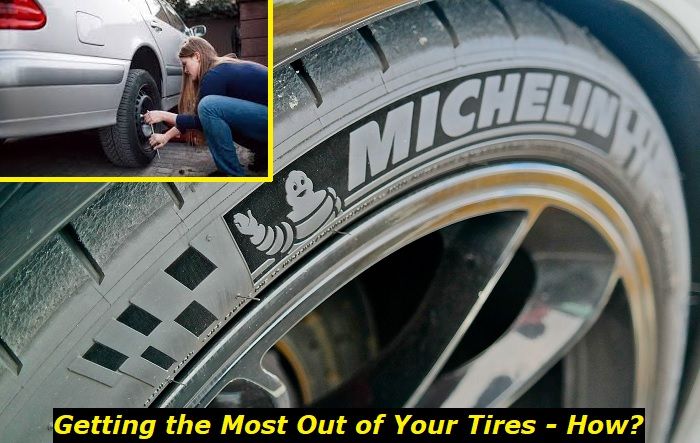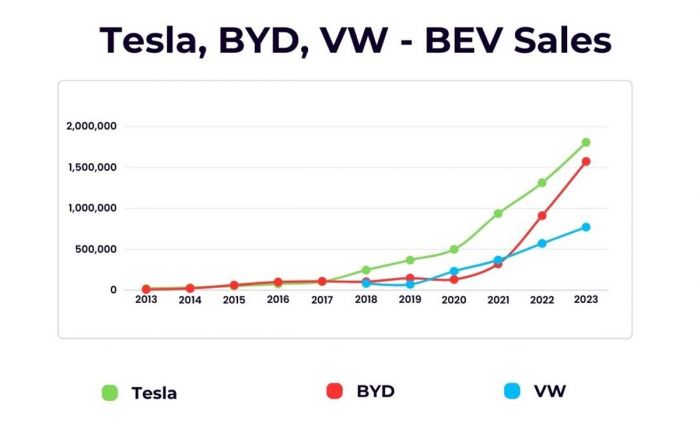Imagine getting a new car battery, only to find out that it's dead a week later. After getting a brand-new car battery, the least of your worries should be the battery dying on you, right? This is a confusing experience that might have you worried that you bought a defective battery. While that's certainly a possibility, there are some things you can check first to see if you can get your vehicle back on the road.
Dead car battery highlights
- Average lifespan:4 - 5 years
- Voltage range:less than 10 volts
- Symptoms:no crank, no lights
- Reasons:complete discharge, age, hard use
- Prevention:regular charging
- DIY fix:possible
- How much to fix?$0 - $250

What's Causing the Battery to Run Out?
To get your car back on the road and avoid dealing with a dead battery, you'll need to figure out the cause of your problem. Dealing with this issue promptly is important because frequent dying will reduce the battery's lifespan and affect its ability to hold a charge in the long term.
There are several different causes of this problem. Here are some of the more common causes.
1) Parasitic Drain
Parasitic drain is when there is a continuous draw on the battery even when the car is off. There are many different causes of parasitic drain, such as certain systems that remain on. Accessories that are left on, key fobs that are too close to the car, or electronic devices that are plugged into the console can all result in parasitic drain.
Parasitic drain can also be caused by electrical malfunctions in the car. The drain could be caused by a faulty alternator, a malfunctioning electrical component, or a short circuit.
Parasitic drain will slowly deplete the car battery, and depending on the size of the drain, the battery could be dead within a week.
Fixing parasitic drain isn't easy, because there are so many potential sources of the problem. A professional automotive electrician will be able to track down the source of the drain and repair the problem.
2) Loose Connections
Your car's battery won't charge if it isn't properly connected to the charging system. If the terminals aren't properly connected, your car might have difficulty starting, and might not charge effectively when the engine is running. This will cause the battery to run out after starting the car enough times.
To fix this, inspect the battery terminals and make sure they are tight and well-connected. Make sure that the connections don't shake or come loose when jostled. Once the terminals are well connected, the battery should be able to charge normally when the engine is running.
3) Faulty Alternator
The alternator uses the power from the engine to generate electricity. The electrical energy generated by the alternator powers the car's electrical systems and charges the battery. Normally, the alternator ensures that the battery is well-charged. However, a problem with the alternator might prevent it from generating electricity and charging the battery.
When the alternator fails, the car will start to rely on battery power to run the car's electronics. This will cause the battery to run out very quickly.
A faulty alternator will need to be replaced.
4) Taking Short Trips
The alternator in your car charges the battery as the engine runs. However, the alternator takes time to charge the battery and requires about 30 minutes of driving to restore the amount of energy that the starter consumes when cranking the engine.
Driving frequently for less than thirty minutes will result in the battery losing its charge very quickly, as it won't have enough time to charge up from the alternator.
To fix this, you will need to make sure to avoid taking short drives too often. Try to take longer drives more often to give your battery a chance to charge sufficiently.
5) Temperature Extremes
Your car's battery is very sensitive to extreme temperatures. High heat or freezing cold will affect a battery's ability to hold a charge.
New batteries are more resistant to temperature extremes, but they can still lose their charge or even lose their ability to hold a charge.
To prevent this, try to park your car away from extreme temperatures and take precautions to protect your battery.
You can protect your battery from heat by making sure your car's cooling system is in good condition. Also, make sure to avoid putting too much load on the battery during hot weather.
You can protect your battery from extreme cold by covering the battery with an insulative battery blanket when the car is not in use.
6) Make Sure All Electrical Systems Are Off
Most drivers have made the mistake of leaving their lights on after leaving their car at least once. Doing this, or leaving other electrical systems running, will quickly deplete even the most well-charged battery.
Before leaving your car, make sure all of the electronics and accessories in the car have been turned off completely. Make sure that the headlights and interior lights have all been turned off. You should also make sure that the radio has been turned off.
Another common mistake is failing to close one of the doors completely. Many cars have a door warning light on the dashboard, while some have a warning chime. Some cars will also turn on interior lights when a door is opened. All of these can significantly drain the battery overnight if a door is left open.
7) Corroded Battery Terminals
Check your battery terminals and cables for any signs of corrosion. Corrosion on the terminals will create resistance and prevent the battery from powering the car effectively. This can also prevent the alternator from properly charging the battery.
If you find any signs of corrosion on your terminals, you can easily clean them off. Make a paste using baking soda and water, and then use it to coat the terminals. Allow the paste to sit for a while, then scrub the terminals clean with a wire brush.
8) Defective Battery
This is unlikely, but there is still a possibility that your brand-new battery is a defective unit. You can check the battery voltage with a multimeter to determine whether the output voltage is the same as what is advertised by the product. You should also examine the battery itself for signs of damage like dents, corrosion damage, or swelling.
If you have a defective battery, you should check whether you can have it returned under warranty. The defective unit will need to be replaced with a good one.
How to Keep Your Battery from Dying Too Quickly
Dealing with a dead battery is no fun, especially when you need to get somewhere fast. To keep yourself from having to deal with this, it's important to know how to keep your battery from dying quickly. Here are some tips you can follow to maintain a good charge in your battery.
- Avoid Frequent Short Drives
Try to avoid taking your car on very short drives too frequently. This drains your battery without giving the alternator the chance to charge your battery.
- Avoid Turning Your Car On and Off Frequently
Turning your car on uses up a lot of power from the engine. Turning on the engine only to turn it off a few minutes later will put a serious drain on the battery, especially if this is done too frequently.
- Unplug Unnecessary Accessories
Certain accessories like dash cameras and chargers use up a lot of electricity. Unplug these accessories when they are no longer necessary.
Make sure to unplug all accessories from the car after turning it off. This is because certain accessories will continue to draw power from your car even after the car has been turned off.
Conclusion
When you get a brand new car battery, you expect the battery to last you a long while before it needs to be charged. However, there are a number of different reasons why you might find your battery dead after a week. This could be due to a faulty alternator, parasitic drain, loose connections, or corrosion. It could also be a result of habits like leaving certain electronics running, or taking frequent short drives.
To keep your brand-new car battery from dying too often, you need to make sure that the battery charges properly whenever you turn on the car. You can ensure that your battery stays well charged by avoiding short drives and making sure to unplug unnecessary accessories.
About the authors
The CarAraC research team is composed of seasoned auto mechanics and automotive industry professionals, including individuals with advanced degrees and certifications in their field. Our team members boast prestigious credentials, reflecting their extensive knowledge and skills. These qualifications include: IMI: Institute of the Motor Industry, ASE-Certified Master Automobile Technicians; Coventry University, Graduate of MA in Automotive Journalism; Politecnico di Torino, Italy, MS Automotive Engineering; Ss. Cyril and Methodius University in Skopje, Mechanical University in Skopje; TOC Automotive College; DHA Suffa University, Department of Mechanical Engineering






Add comment